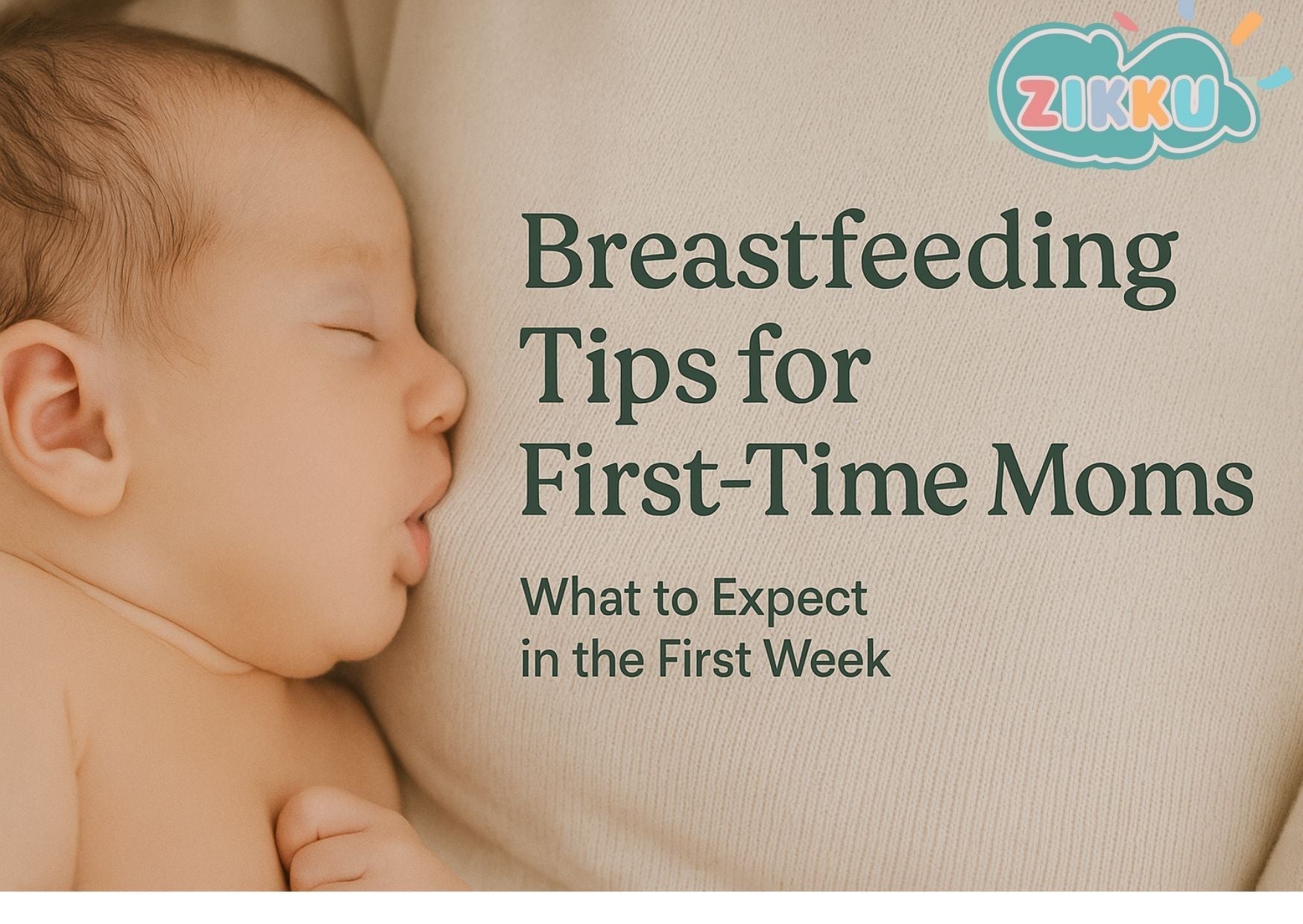Sibling Relationships: Preparing Older Child for a New Baby – A Complete Guide
- by ["Dr. Priyanka Mehta"]

Bringing a new baby home is exciting, but it can also be overwhelming for your older child. Preparing your firstborn for a new sibling is one of the most important challenges expecting parents face. If you're wondering how to prepare an older child for a new baby, you're not alone. Many mothers struggle with this transition, worrying about jealousy, sibling rivalry, and their firstborn feeling left out.
The good news? With the right approach and honest conversations, preparing an older child for a new baby can be smooth and even joyful. This guide will help you navigate sibling relationships and ensure your older child feels secure, included, and excited about becoming a big brother or sister.
Understanding Why Preparing Your Older Child Matters
Your older child has enjoyed being the center of attention. Suddenly, introducing a new baby means sharing your time, energy, and love. This transition can trigger anxiety, behavioral changes, and feelings of insecurity if not handled thoughtfully.
Preparing your older child for a new baby isn't just about managing jealousy—it's about:
- Building a strong sibling bond from day one
- Preventing behavioral regression or acting out
- Making your older child feel like an important part of the journey
- Creating realistic expectations about newborn care
- Boosting their confidence in their new role
Starting these conversations early (ideally during the second or third trimester) gives your child time to process the change emotionally.
When and How to Tell Your Older Child About the New Baby
Timing is everything. Most parenting experts recommend telling your child around the second trimester when the pregnancy is more visible and real. Waiting too long might make them feel left out, while telling them too early can make the wait feel endless.
Here's how to break the news:
- Choose a calm, relaxed moment without distractions
- Keep it simple and age-appropriate (use actual terminology—"baby in mommy's tummy" for toddlers, "fetus developing in the uterus" for older kids)
- Show excitement but also validate that change can feel scary
- Reassure them that your love for them won't change
- Use picture books about becoming a big sibling to make it concrete
For example, you might say: "Mommy has something special to share. There's a tiny baby growing inside my tummy, and you're going to be a big sibling! This baby will be your little brother or sister, and they're going to look up to you."
Making the Pregnancy Real: Activities to Connect Your Older Child
Children understand better when they experience things firsthand. Involve your older child in the pregnancy journey to deepen their excitement and understanding.
Involve them in pregnancy milestones:
- Let them feel the baby kick. Explain what those movements mean
- Take them to a prenatal ultrasound appointment (if your hospital allows it)
- Have them help pick out baby clothes, toys, or nursery decorations
- Read age-appropriate books about babies and pregnancy together
- Let them talk to the baby bump and sing songs
These activities create anticipation and help your older child feel like they're an active participant, not a passive observer. When they're invested in the process, they're more likely to embrace the new sibling positively.
Setting Realistic Expectations: What Your Older Child Should Know About Newborns
Many older children imagine a newborn as a tiny friend they can play with immediately. The reality is quite different—newborns sleep, cry, eat, and require constant attention.
Prepare them for newborn reality:
- Newborns cry a lot—it's how they communicate
- Babies sleep most of the day; they can't play or talk right away
- A new sibling won't be interesting for playtime for several months
- You'll need extra patience and quiet time for feeding and soothing
- Their routines might change temporarily
Frame this positively: "Your baby brother will cry sometimes, and that's okay. We'll comfort him together. In a few months, he'll smile at you, and later, he'll want to play with you. You'll be his favorite person!"
Manage expectations now, and you'll prevent disappointment and resentment later.
Addressing Fears and Concerns
Older children often have unspoken worries about the new baby. Creating space for honest conversations helps them process their feelings.
Common fears and how to address them:
- "Will you still love me?" – Reassure them that love multiplies; it doesn't divide. Your heart grows with each child
- "Will I have to share my toys?" – Establish clear boundaries about special toys that stay theirs and toys everyone shares
- "What if the baby takes my place?" – Emphasize that they have a unique, irreplaceable role as the big sibling
- "What if I hurt the baby by accident?" – Teach gentle handling and supervise interactions until they're confident
Don't dismiss their worries. Validate them: "It's okay to feel nervous. These feelings are normal, and we'll work through them together."
Creating Special Roles and Responsibilities
Giving your older child meaningful responsibilities boosts their confidence and creates a sense of ownership in the new family dynamic.
Age-appropriate sibling responsibilities:
- For toddlers (2-4 years): Fetching diapers, singing to the baby, choosing baby's outfit
- For preschoolers (4-6 years): Helping with bath time, tossing used diapers, being the "official toy picker-upper"
- For school-age children (6+ years): Reading bedtime stories, being the baby's "helper," teaching the baby new things
Make it fun, not burdensome. Praise their efforts generously. This transforms them from a passive bystander to an active, valued team member.
Preparing for Changes in Routine and Attention
Newborns consume time and energy. Preparing your older child for these changes prevents them from feeling blindsided or rejected.
Discuss and plan for changes:
- Your availability will be different—have honest conversations about this
- Create a "special time" routine where your older child gets dedicated one-on-one attention (even 15-20 minutes daily makes a difference)
- Involve them in planning how family routines might shift
- Let them help problem-solve: "How can we keep our special bedtime story time even with a new baby?"
During pregnancy, start practicing the new routines. If bedtime stories will shift from you to your partner, make that change before the baby arrives. This helps your child adjust gradually.
Books, Stories, and Visual Preparation
Children learn through stories. Reading books about becoming a big sibling normalizes the experience and opens dialogue.
Recommended books:
- I'm a Big Sister/Brother by Joanna Cole
- The New Baby by Mercer Mayer
- Peter's Chair by Ezra Jack Keats
- Waiting for Baby by Rachel Fuller
These stories help your older child see themselves in the narrative and understand that their feelings are shared by other kids. Return to these books often and encourage questions.
Managing Behavioral Changes During Pregnancy
As your belly grows, some older children act out—becoming clingy, having tantrums, or regressing (thumb-sucking, baby talk). This is normal and temporary.
Stay calm and consistent:
- Don't punish behavioral regression; it's an emotional response
- Increase physical affection and reassurance
- Maintain consistent boundaries and routines
- Celebrate their "big kid" achievements to reinforce their positive identity
- Consider a therapist if extreme behavioral changes persist
Remember, acting out is how young children process anxiety when they lack the words to express it.
Preparing the Home: Making Your Older Child Feel Included
Your older child's world will change when the baby arrives. Making them feel like the nursery is a family space, not a "baby takeover," helps them embrace the change.
Home preparation tips:
- Let your older child help decorate the nursery
- Keep some of their toys or comfort items in the baby's room
- Create a "big sibling" gift from the new baby (a thoughtful present waiting when the baby arrives)
- Ensure they still have their own special spaces in the home
- Put a chair in the nursery where they can sit with you during feedings
These small touches signal that the new baby is joining their family, not replacing them.
The First Meeting: Making It Special
The first time your older child meets their new sibling is a memory that lasts forever. Make it intentional and positive.
Tips for the first meeting:
- Arrange for someone to bring your older child to the hospital or arrange a special introduction at home
- Have the baby "give" them a gift and a welcome card
- Take photos together (these become treasured memories)
- Let them hold the baby if they're comfortable (with proper support)
- Don't force interaction—let it happen naturally
- Praise them for being a wonderful big sibling
This moment sets the tone for their sibling relationship. Keep it pressure-free and joyful.
Building the Sibling Bond: After Baby Arrives
Preparing your older child for a new baby doesn't end at birth. The real work begins after your newborn arrives. Consistent effort to nurture the sibling relationship during the first months pays dividends for years to come.
Foster bonding through:
- Daily "big sibling time" where they help with baby care
- Allowing them to choose a special song or activity with the baby
- Creating photo opportunities and celebrating their role
- Being patient with mixed emotions—excitement and jealousy can coexist
- Maintaining their routines and special traditions
When to Seek Professional Help
Most sibling transitions go smoothly with preparation and patience. However, seek professional support if your older child shows:
- Severe behavioral regression lasting more than a few weeks
- Extreme aggression toward the baby or parents
- Withdrawal and loss of interest in activities they enjoyed
- Sleep disturbances or anxiety that doesn't improve
- Refusal to accept the baby after several months
A child psychologist or family therapist can provide tools tailored to your child's needs.
Ready to embrace this exciting transition with confidence? Zikku understands that preparing for a new baby involves caring for both your older child and your newborn. Explore our range of newborn essentials and maternity support products designed to make this journey smoother for the entire family. From nursing pillows to postpartum recovery aids, Zikku has everything expecting and new moms need. Shop the Zikku collection at www.zikku.in and make this sibling journey beautiful for everyone.
Follow Zikku for more parenting tips, pregnancy advice, and newborn care guidance that every mother can trust. Because the best journeys are the ones you don't take alone.








